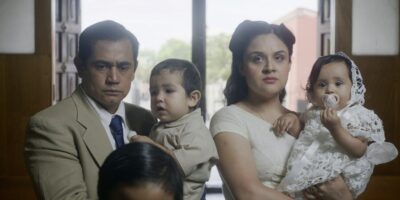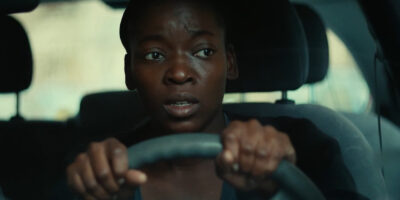This article previously appeared on Crossfader
The 2017 Student Academy Awards feature a batch of outstandingly diverse directors and stories. With three thesis films shot outside of the United States (from Croatia to Taiwan), and the rest dealing with issues of serious political and personal weight, the nominated films continue to prove themselves as a beacon of unheard voices in a rapidly changing industry. With this series, Crossfader will be highlighting all seven filmmakers from the Live Action – Domestic section.

New York University’s hat-trick nominations at the Student Academy Awards highlight an exhilarating level of diversity. With MY NEPHEW EMMETT, director Kevin Wilson Jr. has the only historical biopic in the selection, but to call it such would be awfully reductive. Though a non-fiction account of Emmett Till’s final hours preceding his violent death, Kevin Wilson’s film is a Southern yarn like few others. It’s breathtakingly effective in its display of unrest, and understands tonal precision like a Cassavetes chamber piece. Oppressive, but not one-note, it’s a biopic that avoids the pitfalls of didactic moral teachings by simply being a sermon for its eponymous character. More a candlelight vigil than a political statement, a means of reminding us of the horrors of racism, knowing full well that it’s a problem that is far from being solved.
So what’s really exciting is that this absolutely marvelous film wasn’t your thesis! What were the parameters for the assignment?
So NYU’s program is set up so that basically each year is devoted to a short film. We screen each other’s films and are forced to tear each other down. It’s very intense, but it really humbles you as a filmmaker. It just makes you better at knowing what you want to achieve.
What was the process for making it? It seemed like you made this out of state?
Yes, we actually shot in Mississippi. I’m a very spiritual person, so we shot a mile or two away from where the incident actually happened. And I really believe that the spirit of Emmett and his family were present. I look to my ancestors and God to elevate the project. And yes, I had folks and professors try and encourage me to shoot at farms like that in New Jersey, but it wasn’t about the flatland. The aesthetic is different, of course, but it was important to me to be there. And it was difficult because the film takes place in the summer, but we shot in January. So it was challenging. But most people with our program have travelled all over. We’ve had people go to Ireland, and Nepal, and so on.

That’s for second year projects?
Yeah, it’s a great opportunity to get ambitious early on and we’re really trusted by the school. And we’re picked up if we fail. So even if it doesn’t work it’s not horrible. Because we learn from this.
What was the process like writing such a personal story? Of course you want to be historically accurate, so what made you say, “I want to tell Emmett’s story specifically”?
I’ve been connected to Emmett Till for a long time. I was five years old when my mother told me about it and showed me the photograph of his mutilated corpse. And it was my first memory of an image. It’s horrifying to see when you’re 20 years old, let alone when you’re five. And I’ve always talked about the power of the image, photography, and the media. This photograph sparked outrage and galvanized the civil rights movement. So it was very important to me. And I’m a father now, so it’s become even more important to me to know what it feels like when you lose control and your children are just taken from you. I mean, I have two sons, and they live in a world where black men, black women, and minorities in general have a hard time navigating society. So I think about what I’m gonna do when my son is in that situation. And it was a challenge, because we all know Emmett’s story, but I’m not a fan of historical regurgitation. I don’t care for Wikipedia adaptations. I want to explore something in an unordinary way. It’s why I think SELMA is such a powerful film. She wants to give an intimate account, not tell us about everything that happened. It’s about not exploiting the story for my personal gain, but sharing its cultural ramifications.

So what were the films that inspired you? Would SELMA be one?
SELMA was something I watched about how to treat a historic event. But the ones we used as reference weren’t historic. Mostly contemporary. COLD IN JULY was one. Mostly about how to capture darkness, reflect light off our actors. MOTHER OF GEORGE was another, and AIN’T THEM BODIES SAINTS as well. We really wanted to make sure we could capture rural life correctly, so those films were all very important.
So backtracking to Emmett Till again: one of my favorite decisions was that you didn’t show the image of Emmett’s body. It’s so embedded in our culture, so it didn’t feel necessary. Was that a debate you had in editing?
Yes, definitely. Our first edit had it and it just made the film a teachable project. It wasn’t cinema to me. I wanted to immerse people in this world so that they can see themselves in it. I want people to consider how they’d react or respond if they were in this situation. And in historic films, I think it’s important to decide how much you wanna show. Me and my producer debated this for a while and we thought it would be best not to show it.
Exactly. It really works because it’s a lesson in cultural norms, not a historical lesson. That’s why it works so well.
Thank you.

Was everyone in the crew from NYU?
Yes, everyone was NYU. My DP and the whole creative team were from the grad program. My 1st AD was from the School of Digital Arts and some of the PAs were not in film school and just lived in Mississippi, but the core team was from my program. NYU has a couple core focal points. You can choose to graduate as a producer, writer/director, cinematographer, etc. Each of these are a little different in their track, but I chose to become a writer/director, so now I’m writing a feature screenplay in order to graduate.
So is that what’s next for you?
I have plans to shoot my first feature film in the summer of 2018, and I’m going to do a thesis film that acts as a proof of concept for this feature. It’s a drama about a mortician who strikes a pedestrian while drunk driving and flees the scene. The film is about how she deals with that afterwards.
That sounds great! I hope to hear more from it in the future!
Absolutely, thank you so much.
Catch MY NEPHEW EMMETT on the festival circuit later this year, and keep your eyes peeled for more of Kevin’s work down the line!
















Comments